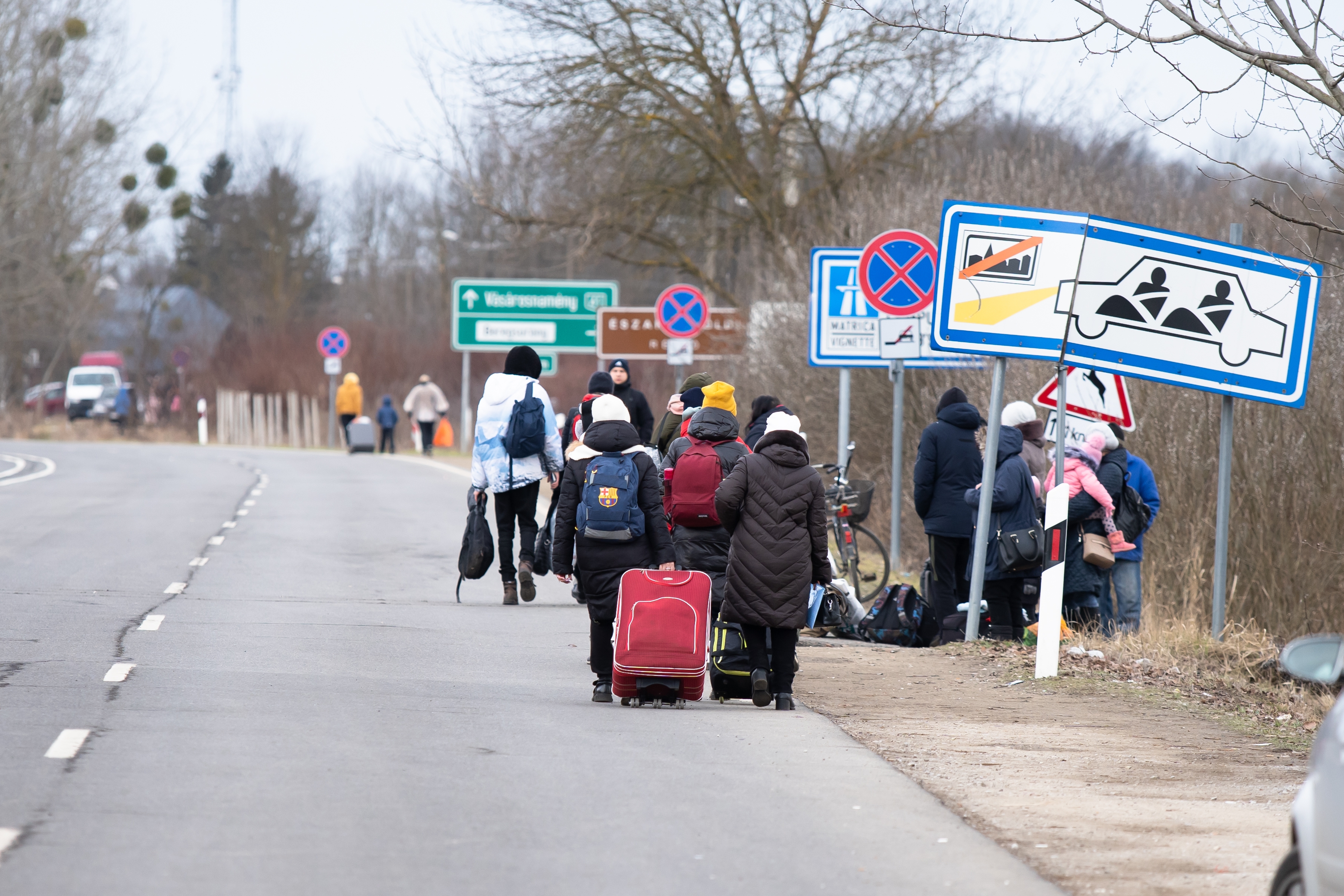President Biden on Wednesday highlighted how the war in Ukraine is raising food prices globally as previously neutral countries increasingly seek to join the defensive umbrella of NATO. This as Ukraine's counter-offensive around Kharkiv has pushed close to the Russian border, and as Russian missiles again struck Odessa in an effort to stop the flow of Western weapons. Nick Schifrin reports.

As a nonprofit journalism organization, we depend on your support to fund coverage of global conflicts. Help us continue funding the hard costs of in-depth coverage of the Ukraine invasion—including travel, hostile environment safety training, and the increased security expenses that arise from reporting in war zones.
Read the Full Transcript
Judy Woodruff: President Biden visited a farm in Illinois today to highlight how the war in Ukraine is raising food prices around the world.
Meanwhile, the war is pushing previously neutral countries to seek the defensive umbrella of NATO.
Nick Schifrin joins me now from the city of Dnipro in Southeastern Ukraine.
So, Nick, hello.
And let's start with this question of food. Why is Ukraine's food so important to the world?
Nick Schifrin: Ukraine is the largest producer of wheat in the world, Judy, and one of the largest producers of cooking oil.
But production has been halted mostly because of the violence. And, also, Ukraine can't export because Russia is blockading its ports. Meanwhile, Russia is the largest producer of fertilizer in the world. And it can't sell that because of export controls and sanctions.
And so all of that adds up to what the WFP called an explosion of global hunger and the Food Administration Organization says are the largest global food price index hikes that they have been measuring in more than 30 years.
And so the president today announced new efforts to increase U.S. production. In Ukraine, the emphasis is also on trying to increase production. We have seen some farmers out there trying to harvest in the spring. Today, we visited a steel plant a few hours from here, the largest in the country, that recently restarted its production.
But, again, the problem is those Russian warships off the coast of Odessa in the Black Sea. That means that none of those farmers, none of the steel plants can export to where they usually do via ship. And that means they're turning the trains overland into Europe. That is much more expensive and takes a lot longer than it usually does, Judy, which means these global food problems will continue.
Judy Woodruff: So complicated.
And, Nick, last night, you were reporting on the progress that had been made in — by the Ukrainians in the city of Kharkiv in the east. But tell us about where you are now. In the south and the east, what does it look like there? And what is President Zelenskyy saying?
Nick Schifrin: Yes.
So, in the east, Russians are making gains in the critical city of Izyum. They're pushing out a little bit to the west. And that's important for their supply lines down in the Donbass. Where we are, in the south, in and around the area of Kherson, the lines are pretty static, according to Ukrainian officials.
But the mood, Judy, at the top is positive. President Zelenskyy tonight in his nightly address said that: The war wouldn't end until Russia returns everything that is ours.
That suggests that Ukraine wants Russia not only to return what it has recently captured since the invasion two months ago, but, also, Ukraine wants to recapture territory that Russian-backed separatists have controlled in Eastern Ukraine since 2014.
Other Ukrainian officials are using the word victory. And I have talked to multiple Ukrainian officials in the last few days about, because they're getting new, heavier weapons, they want to launch counteroffensives, including in places like Mariupol.
So that, Judy, adds up to a grinding war of attrition that U.S. officials are beginning to talk about would last months, if not years.
Judy Woodruff: Oh, if not years.
So, Nick, NATO — we have seen NATO galvanized by this war. And we know it's about to get larger. What would the addition of Finland and Sweden mean? What is it thought would be the difference that could make?
Nick Schifrin: Yes, so Finland and Sweden are both over the next 24 to 48 hours expected to announce that they will join NATO.
And the most senior NATO officials I speak to say that, at the very top, they have been, frankly, shocked at how quickly things have changed. Finland and Sweden have been integrated into NATO for a few years, but it's really a generational shift for these governments to choose to join the NATO alliance.
And it is the opposite of what Putin has wanted. This will mean more countries in NATO, including on Russia's border — Judy.
Judy Woodruff: And you're right. This is exactly what Vladimir Putin did not want, but it's happening.
Nick Schifrin reporting tonight for us from Southeastern Ukraine.
Nick, stay safe.
Nick Schifrin: Thanks a lot.
Judy Woodruff: And a reminder: Nick's reporting and our ongoing coverage of Ukraine is supported in partnership with the Pulitzer Center.





